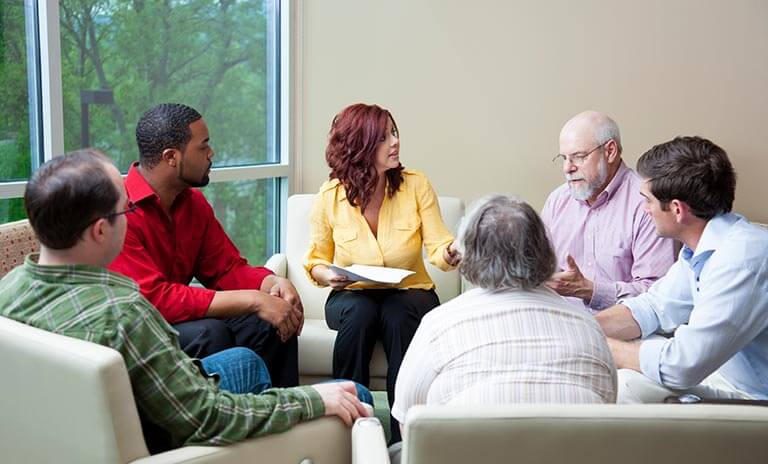Learn about Domestic Violence
Learn More About Domestic Violence
When physical or psychological abuse is used as a means of obtaining and sustaining control over another person in an intimate relationship, it is known as domestic violence. A pattern of abuse that occurs in cycles, domestic violence does not discriminate against gender, sexual orientation, age, race, culture, socioeconomic status, or religious affiliation. Early warning signs of domestic violence may begin with the use of verbal intimidation or threats and can escalate to physical violence over time. The following are examples of other early warning signs, in addition to other means in which abusers gain control over their victims:
- Constant criticism/name-calling
- Isolation from family/friends/work
- Extreme jealousy or possession
- Gas-lighting (denying incidents occurred)
- Stalking
- Humiliation
- Withholding basic necessities (money, food, clothing, etc.)
- Sexual assault
- Physical violence
Recognizing the symptoms of domestic violence is important. While the early warning signs may not appear to be a risk to a person’s physical safety, abusive behaviors are not appropriate in any relationship, and even those warning signs that may not present as overly concerning can eventually escalate into dangerous circumstances.
Individuals who fall victim to domestic violence frequently experience feelings of shame and guilt, falling into an assumption that the abuse that is inflicted upon them is somehow their fault. Additionally, many people who suffer from domestic violence become traumatized from their experiences, which can ultimately affect their abilities to engage in future healthy relationships. It can also, sadly, negatively affect their abilities to function appropriately in various aspects of their lives on a daily basis. They may struggle to perform to expectation at work, may become isolated from social circles, and may no longer be able to adhere to daily tasks around the home.
It is important to recognize, however, that if you are a victim of domestic violence, it is not your fault. There is nothing that you did to warrant the abuse that is being inflicted upon you. Furthermore, it is important to know that there is help available. Not only help in the form of providing a safe outlet in which to escape from the abuse you are experiencing, but also help in overcoming the residual effects of trauma that may be tainting your ability to live a happy and healthy life. With the assistance of a professional treatment center or hospital, you can overcome and move beyond the effects of domestic violence.
Statistics
Statistics on Bullying
Due to a large number of unreported domestic violence cases, statistics on this form of abuse are not static. However, and according to the National Coalition Against Domestic Violence (NCADV), one in every four women will be a victim of domestic violence at some point in her life. Moreover, victims of domestic violence are often abused by someone they know. One-third of homicides with a female as the victim are at the hands of a person with whom they were intimately involved. And while it is commonly believed that women are the only victims of domestic violence, men are also frequently victims themselves.
You may be a victim if
Signs That You May Be The Victim of Domestic Violence
If you have experienced any of the following scenarios, you may be a victim of domestic violence:
- Your partner threatens to hurt or kill you
- Your partner destroys your personal property
- You feel your partner constantly criticizes you
- Your partner blames you for the abuse
- You feel your partner has isolated you from friends/family/work
- Your partner limits access to food, money, phone, etc.
- Your partner constantly checks up on your whereabouts
- Your partner has sexually assaulted you or forced you to have sex
If you can relate to any or all of these situations, you may be in a domestically abusive relationship. Someone experiencing domestic violence should heed the warning signs and seek help before it gets worse.
Your loved one may be a victim if
Signs That Your Loved One May Be The Victim of Domestic Violence
While some abusive behaviors are seen by others, a lot of victims of domestic violence suffer in silence within the confines of their own homes and minds. Some key indicators that a loved one is the victim of domestic violence include:
- Is habitually injured and says “it was an accident”
- Shows a change in personality
- Misses school, work, or social situations without reason for their absence
- Seems eager, but anxious, to please their partner
- Discusses their partner’s possessiveness and anger
- Has low self-esteem despite being previously confident
Victims often do not know how to ask for help when domestic violence is an issue. There is fear and concern for their loved ones’ safety in addition to their own. As a loved one, it is important not to ignore these signs or changes a person’s behavior. Being a source of support and assistance is fundamental in helping a victim leave an abusive relationship so as to prevent things from taking a fatal turn.
Effects
Traumatic Effects of Domestic Violence
If a person has been the victim of domestic violence, he or she may understandably be traumatized from his or her experiences. This trauma can permeate most, if not all, aspects of daily life, trapping him or her in a vicious cycle of self-defeat.
Trauma can arise from any number of experiences. Whether it be experienced firsthand, witnessed, or having learned about trauma affecting a loved one, the residual effects can negatively impact one’s overall wellbeing, both physically and mentally. When a person has been the victim of domestic violence, he or she may suffer from the following effects:
- Deteriorated self-esteem
- Onset of self-harming behaviors
- Disturbed social interactions
- Frequent absences from work, resulting in demotion or job loss
- Concentration difficulties
- Permanent scarring or disfigurement from physical violence
- Development of drug or alcohol addiction
- Disturbing flashbacks
- Nightmares
- Paranoia
- Extreme anxiety
- Depression
- Onset of eating disorders or other types of mental health conditions
- Suicidal ideations
- Attempts at committing suicide
Yet, these effects do not have to be the outcome. By making the brave step to seek help at a treatment center or hospital, victims of domestic violence can avoid such devastating effects.
Treatment
Treatment for Victims of Domestic Violence
Because the cycle of violence is recurring and shame is frequently felt by a person who is a victim of domestic violence, making the choice to leave an abusive relationship can be quite difficult. Leaving signifies the ending of not just the violence, but also the relationship. Many victims return to their abusers out of fear and the discomfort that comes with them being responsible for making all of their own life choices. Providing ongoing support, resources, and assisting the victim in seeking treatment for domestic violence are essential to ending the cycle of violence for a loved one.
Furthermore, by receiving care at a hospital or treatment center, individuals can engage in therapeutic interventions that help them process through the traumas that they have experienced. They can learn coping skills and discover ways for identifying the difference between healthy and unhealthy relationships. Additionally, in these types of treatment settings, individuals can give and receive support to and from others who may themselves have been victims of domestic violence, removing the sense of isolation that people in these circumstances often feel.
Treatment in an inpatient setting has been known to be an effective way of treating victims of domestic violence. Hospital’s offer the victim a sense of security and a safe environment to focus on healing. At Seven Hills Hospital, located in Las Vegas, Nevada, our experienced staff is committed to providing exceptional treatment for victims of domestic violence who are suffering from the emotional effects of the trauma that violence caused. In understanding the immense courage it takes to leave an abusive relationship, we strive to provide a caring and therapeutic setting in which patients are able to leave our door and begin a new life, free from the devastation they once faced.





















